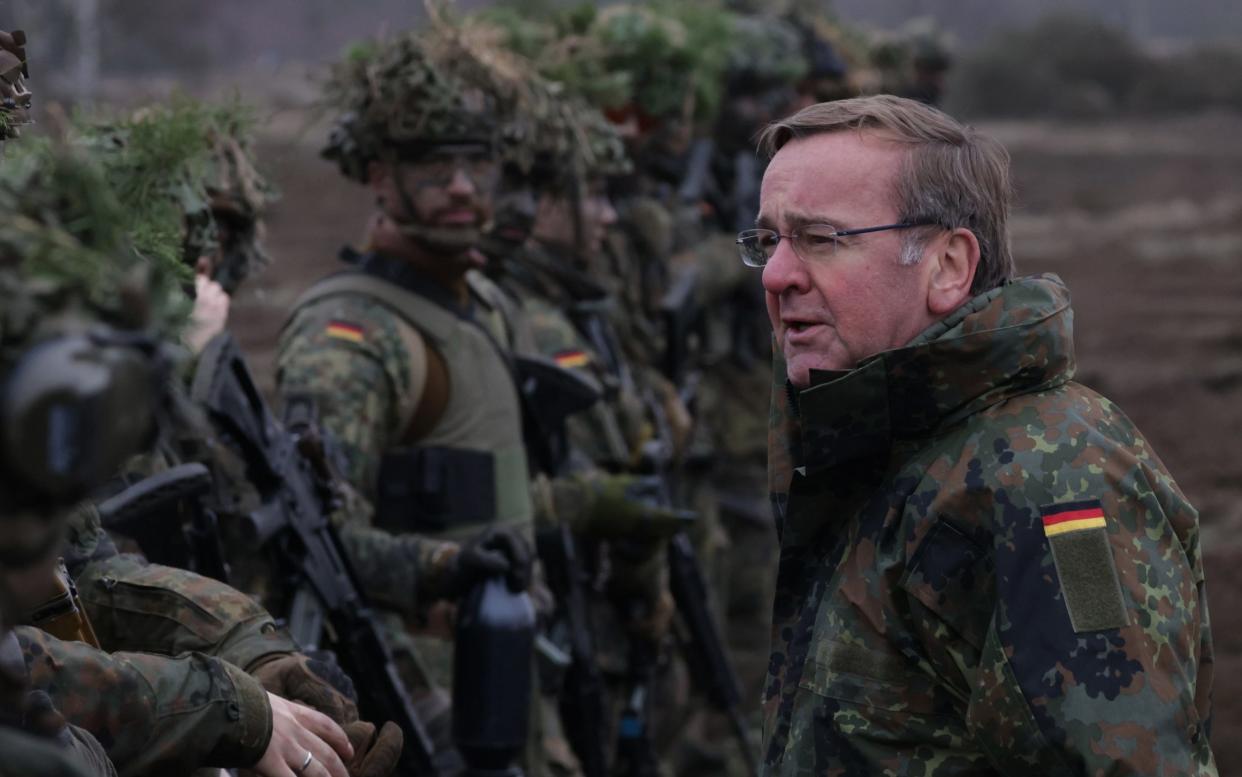Germany considers recruiting foreigners to army in face of Russian menace

- Oops!Something went wrong.Please try again later.
- Oops!Something went wrong.Please try again later.
Foreigners could be allowed to join the German army as Boris Pistorius, the country’s defence minister, tries to recruit an extra 20,000 troops in the face of threats from Russia.
“We would not be the first armed forces in Europe to do that,” Mr Pistorius told the German newspaper Tagesspiegel, as he confirmed the idea was being considered by the government in Berlin.
Under German law only citizens can serve in the Bundeswehr in principle, though foreigners can be allowed to join in certain special cases, according to Bild, a German tabloid.
Since the Russian invasion of Ukraine in February 2022, the Bundeswehr has stepped up recruitment efforts to meet its new target of 20,000 extra troops, with a series of advertising campaigns targeting Generation Z, as well as plans to allow flexible working.
Germany would not be the first EU country to adopt a policy where foreigners can join the military. Denmark currently allows foreigners to enlist if they have a work or residence permit. Spain and Slovakia also allow foreigners into the army if they meet certain conditions, according to Euromil, the European Organisation of Military Associations and Trade Unions.
In France, men aged 17-40 can join the French Foreign Legion provided they can stomach its famously gruelling selection and training regime. However, only UK and Commonwealth citizens are allowed to serve in Britain’s Armed Forces.
Mr Pistorius has already warned that Russia’s President Vladimir Putin may decide to attack a Nato country within the next five to eight years.
“We have to take into account that Vladimir Putin will one day even attack a Nato country,” he said. “Our experts expect a period of five to eight years in which this could be possible … at the moment I don’t think a Russian attack is likely.”
Olaf Scholz, the German chancellor, announced a “Zeitenwende”, or turning point, in German defence policy shortly after Putin invaded Ukraine. This included pledges to wean the country off cheap Russian gas, spend some €27 billion on support for Ukraine and to increase the fighting prowess of the Germany army.

